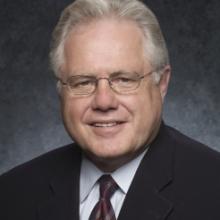moral majority
Some of my friends have been talking about giving up the “evangelical” label, because of what it has come to be associated with, in this year’s political campaign. I’m not ready to make that move. I spent a good part of the 1960s trying hard not to be an evangelical, but without success.
When I marched for civil rights during my graduate school years, I helped to organize “ban the bomb” marches and protested the Vietnam War. I was clearly out of step with much of the evangelicalism of the day.
1. 9 Ways We Can Make Social Justice Movements Less Elitist and More Accessible
"After a few weeks of feeling confused and invisible, I decided that I just wasn't smart enough to be an activist."
2. WATCH: Obama Condemns 'Routine' of Mass Shootings, Says U.S. Has Become Numb
"As I said just a few months ago, and I said a few months before that, and I said each time we see one of these mass shootings, our thoughts and prayers are not enough."
3. French Catholics Take in Refugee Family Seeking a 'Normal Life'
"The local effort is part of a national Catholic network that connects homeless asylum seekers with families willing to take them in."
Author’s Note: Institutions we have valued for generations are dwindling and falling by the wayside because we no longer have the finances to sustain them. In this second essay on financing seminary education (read the first HERE), I will address the socio-political and economic concerns that add to the complexity of the current crisis in theological education.
Democracy is based on the ideal of political equality. Each citizen is to have the same potential to influence what government does regardless of financial status. Markets, on the other hand, are directly related to real dollars. The consequent result for the U.S. democratic capitalistic structure is that while the rich and the poor are equal politically, they will never be equal economically. This combination could lead to two undesirable extremes: 1) mob rule by asset-less democratic majorities, or 2) oligarchic rule by the affluent. Thus, government’s role is to oversee the enterprise through the creation of regulatory policies that prevent runaway markets and taxation that assures a sustainable distribution of wealth and resources for the whole population. In order to achieve these goals, political theorists have developed models that focus on creating and sustaining a strong middle class with the result that the median voter will correct rising inequality in wealth as well as poor economic performance.
Since the rule of Constantine in the 4th century A.D., church leaders have lived precariously close to showing preference and promoting one political leader over another. The Rev. Billy Graham came to regret his close ties to Richard Nixon, who used "America's Pastor" to his political advantage.
A prophetic distance must be maintained, allowing space between what the Spirit and the Word might say in any given situation, and the political leader or policy in question. The role of prophetic analysis requires distance so as to avoid compromise.
Then, too, we see how important it is not to make our rendition of the Gospel synonymous with a particular view of economics, role of government, social management or civic engagement. After watching Christian leaders running to the beck and call of Nixon, Chuck Colson warned us that the kingdom of Christ does not arrive on Air Force One.
Every so often, evangelicals get the urge to ex-communicate. Feminists, open theists, and universalists have all drawn the ire of their co-religionists. In the absence of a central religious authority, such efforts are doomed to fail.
According to most scholars, evangelicalism is more of a network than a unified church. Magazines, publishing houses, colleges, and parachurch groups play a bigger role than ecclesial bodies. While condemned from many pulpits, the emerging church continues to publish with Zondervan and Baker. Owned by the same company as Zondervan and Fox News (Rupert Murdoch’s News Corporation), HarperOne has provided a home for Rob Bell and his Love Wins.
Though it hasn’t been easy, Bell has remained a part of American evangelicalism.
Fried by their battles with fellow believers, some have decided to ex-communicate themselves. Even then it is hard to cut the tie. As in the case of cultural Catholicism, religious terminology may haunt a post-evangelical’s speech. Commenting on this phenomenon, Tony Jones wonders whether evangelicalism is the “new Jewish" — more cultural than confessional.
I first heard the term "evangelical" in the 1980s, about the time the Swaggarts and Bakkers were imploding. Christianity needed a new name for sane, intellectually sound faith.
"Born-again" had been sullied by the televangelists and worn out by Debbie Boone’s explanation of how she justified singing the lyrics to “You Light Up My Life.”
"Jesus Freak" had died with the Peace movement.
We needed another word to separate true Christians from fake ones; sheep from goats; serious believers from those who merely checked the “Christian” box on their driver’s license application because Jew, Muslim or Ekkankar didn’t apply.
(Sometimes I wonder if all the denominations in Christendom are merely a list of the nomenclature we’ve used to separate Us from Them.)




